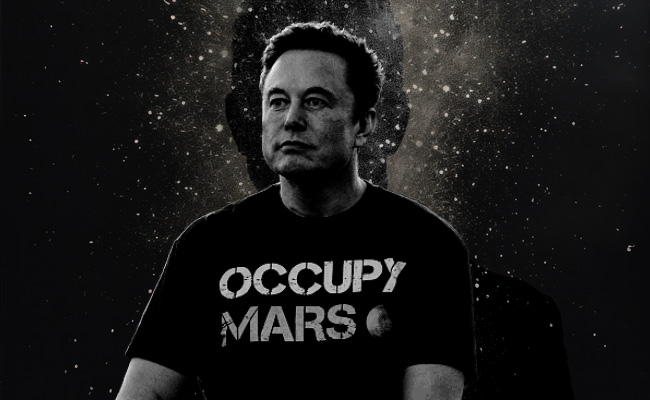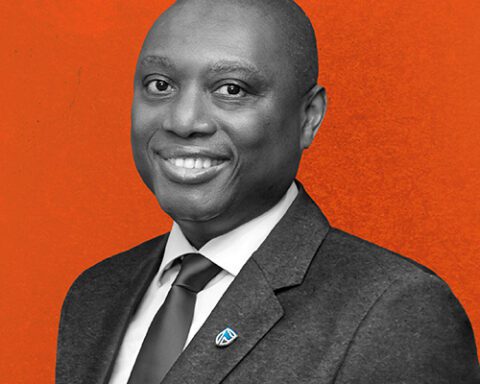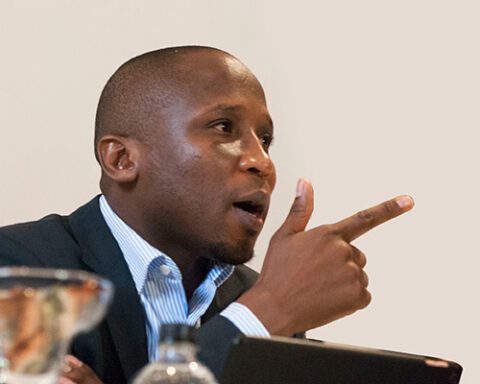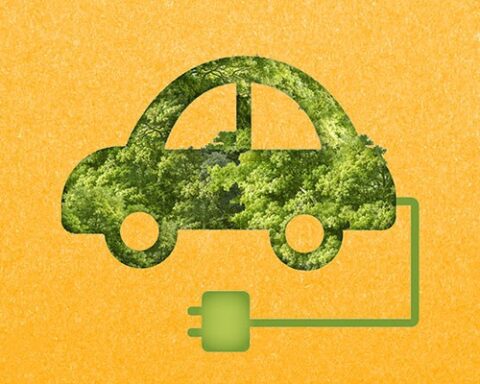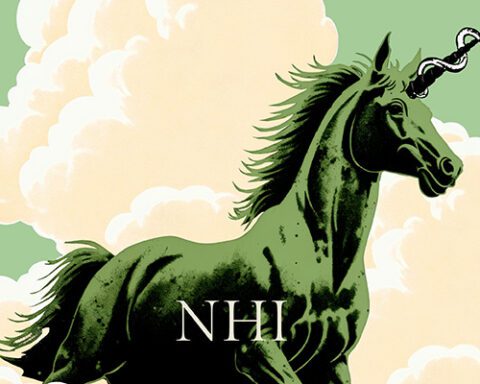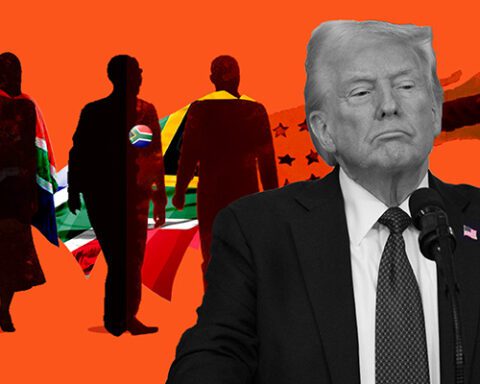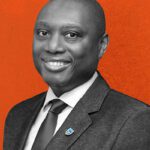The meeting looked distinctly cosy. Two of the greatest salesmen around – Elon Musk, hawker of satellite broadband service Starlink, electric carmaker Tesla, rocket builder SpaceX and feral misinformation portal X, and Cyril Ramaphosa, peddler of the great South African rainbow investment dream. They laughed casually before sinking into couches, eyebrows raised, to tackle the serious stuff.
This belied the obvious tension you’d expect: Musk, born in Pretoria but having lived in the US since the age of 17, has echoed the more apocalyptic talking points about the country, describing Julius Malema’s party as “openly pushing for genocide of white people in South Africa”, and saying, “they are actually killing white farmers every day”.
But then, Ramaphosa has his own motives: winning back the foreign investors who sold an inconceivable R1-trillion in South African equities and bonds over the past decade. Hooking a catch the size of Musk, especially one previously none too impressed by South Africa’s politics, would go a long way to reverse the sentiment.
To many, it raised the question of whether South Africa could get Starlink, a satellite broadband service delivering data at a speed of about 100MB/s, to connect rural parts of the country to the internet.
Alan Knott-Craig Jr, founder of fibertime, says Starlink would be one of the best possible things to happen to South Africa.
“If you want to connect a village of 1,000 homes to fibre in a remote area like Thohoyandou or northern KZN, you need a transmission network, and that’s what Starlink provides. You’ll still need fibre to connect those 1,000 homes to the world wide web, but Starlink gives you instant backhaul via satellite,” he says.
And, as Daily Maverick’s Tim Cohen pointed out, South Africa’s latest census found that only 14% of South African households have internet at home, with that figure dropping to 3.1% in the more rural province of Mpumalanga and 4.5% in Limpopo. “It’s worth asking whether the cellphone industry is quietly discouraging the South African government from licensing Starlink to protect its lucrative data oligopoly,” he wrote.
So why the hold-up?
Well, the regulator, the Independent Communications Authority of South Africa (Icasa), has made it clear that Starlink can’t operate here without a licence to “protect its licensees and consumers by ensuring that there is fair participation and competition in the market”.
And Starlink hasn’t applied for a licence, those close to the process say, because of the requirement that licences have to have 30% black ownership.
Icasa chair Mothibi Ramusi told ITWeb earlier this month that “when we issue those licences, there are specific conditions”, including those of BEE, “it’s a policy”.
Musk evidently didn’t look favourably on handing over 30% of his local business. So, in line with the sort of bravado he has shown on X (where he’s taken to suing advertisers for not advertising), he is betting that South Africa needs Starlink more than he needs the business.
It’s a rational enough approach; the question is: did Ramaphosa blink during their meeting in New York and offer any concessions on this front?
Bending the rules?
The feedback from both sides has been vintage cottonwool PR: Musk tweeted that it was a “great meeting”. Ramaphosa’s side said the meeting “explored opportunities for Elon Musk to invest in South Africa”, while not missing the chance to describe him as a “South African-born American entrepreneur”.
“This is about more than sentiment,” says Glenn Silverman, chief executive officer of GS Investment Services. “Musk’s Starlink is everywhere, and South Africa has been notably absent from that list. For an ex-South African like Musk to be pointedly shunning the country is embarrassing for the government, so if they can turn this around, it would be indicative of a change in attitude from both sides.”
With all the inclination for compromise that you’d expect of bureaucrats, Icasa hasn’t given any indication it is willing to bend its rules.
But in any event, should the rules be bent for Musk, just because the country needs the service?
“Well, no,” says Silverman. “But what you can do is ask if those rules are appropriate if they are blocking a service the country needs. This isn’t changing the rules for an individual, but saying that if these rules aren’t in the country’s best interests, they should be relaxed in any event.”
If Ramaphosa’s government were to demonstrate flexibility on this 30% ownership rule, Silverman says, it would show it has learnt the lessons of the past decade and realised the value of compromise – a skill the ANC has had to reacquaint itself with in the new government of national unity (GNU).
“I spoke to many foreign investors over the past decade who said they simply wouldn’t invest in South Africa – there was no power, no water, there was corruption – and now, this has turned for the good, in a dramatic fashion. Were South Africa to woo Elon Musk, it would be the cherry on top of that cake,” says Silverman.
The Musk meeting completely overshadowed Ramaphosa’s address to the UN General Assembly – the real reason for his visit to New York – where he pressed the message that the GNU has profoundly changed the country’s trajectory.
“We are in a new era,” he said. “In what some have called our second miracle, South Africans of all races have rallied behind the government of national unity. We are making headway in resolving some of our most pressing challenges. Our economy has begun to improve, and investor confidence is on the rise.”
That might be overegging the omelette, but you get the picture. Knott-Craig, for his part, doesn’t believe the 30% shareholding issue is the stumbling block to Starlink’s introduction into South Africa that it has been made out to be.
“You must be sure not to mistake for malice what can be explained by incompetence,” he says. “The regulator has been sitting on its thumbs, but now that they’ve seen a picture of the president and Elon Musk together, it may finally jolt them into action.”
Musk, as South Africa’s best-known export (and one of the US’s most famous immigrants), certainly wields outsize influence in this country. Many South Africans laud his free speech fundamentalism, which has seen him making egregiously incorrect claims, including that illegal immigrants are “not prevented from voting in federal elections”.
Deciphering Musk’s psychology and motivation for his crowd-heckling has become something of a cottage industry in itself.
In the Financial Times this weekend, Simon Kuper spoke of how Musk is one of a handful of “50-something white men with formative experiences in apartheid South Africa” who have become central pillars of the movement supporting Donald Trump.
The others are Peter Thiel, whose father was involved in uranium mining in South Africa, David Sacks, the venture capitalist who left South Africa at the age of five and is now a fundraiser for Trump, and Paul Furber, an IT specialist whom the New York Times claimed was the originator of the QAnon conspiracy.
“The final commonality between many white South Africans who experienced the end of apartheid and today’s American right: a contempt for government. The apartheid regime and then the ANC left millions of South Africans without electricity, dignity, safety or decent schooling. That experience can encourage anti-government libertarianism,” Kuper wrote.
In this context, were Ramaphosa to lure Musk back to these shores, particularly through Starlink, it would be a triumph for his new government. And, as odious as Musk’s rantings might be on Twitter (a platform which, ironically, identifies as “X”), satellite broadband in our rural villages would be a serious victory for the country he left behind too.
Top image: Elon Musk. Michael Gonzalez/Getty/Currency.
